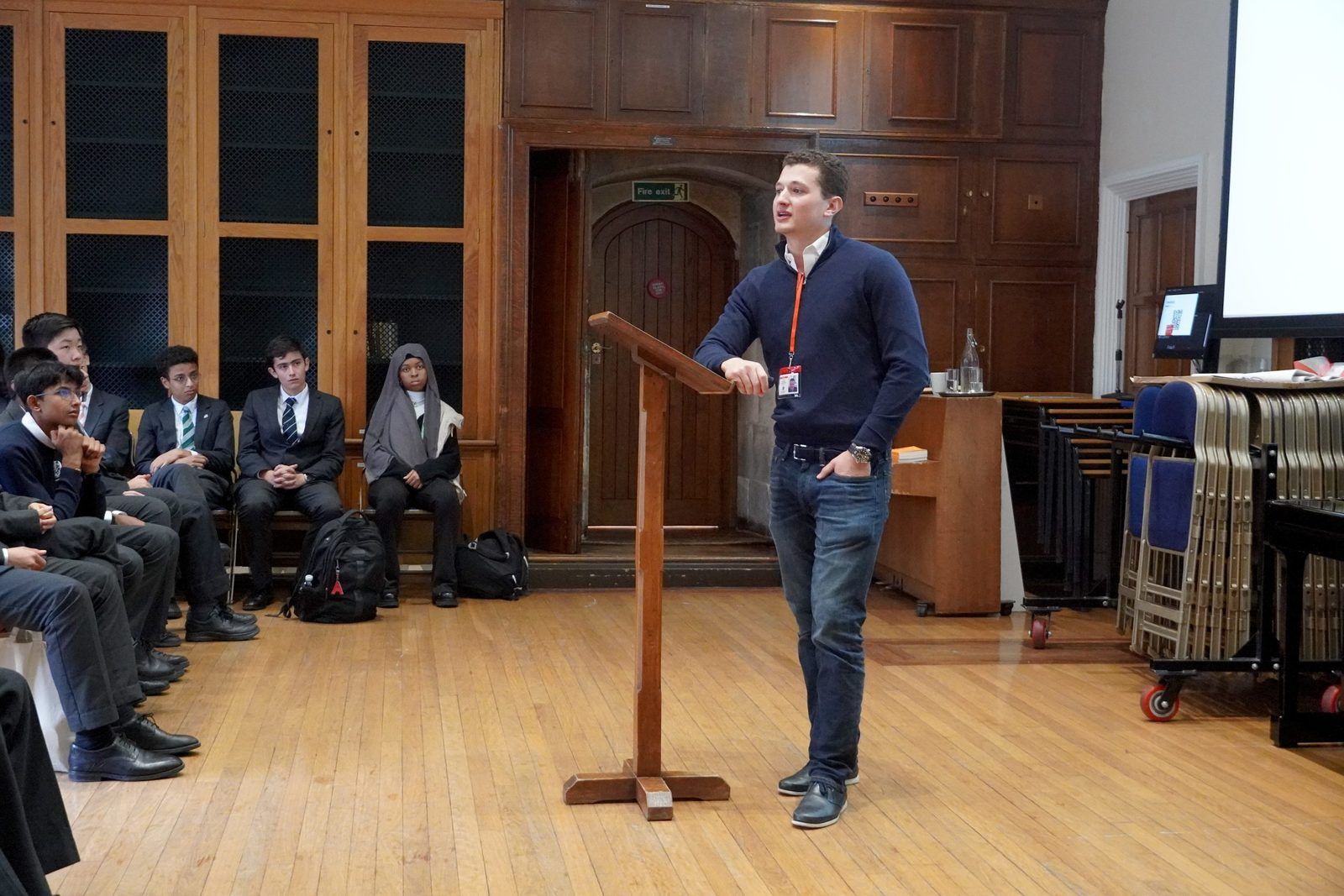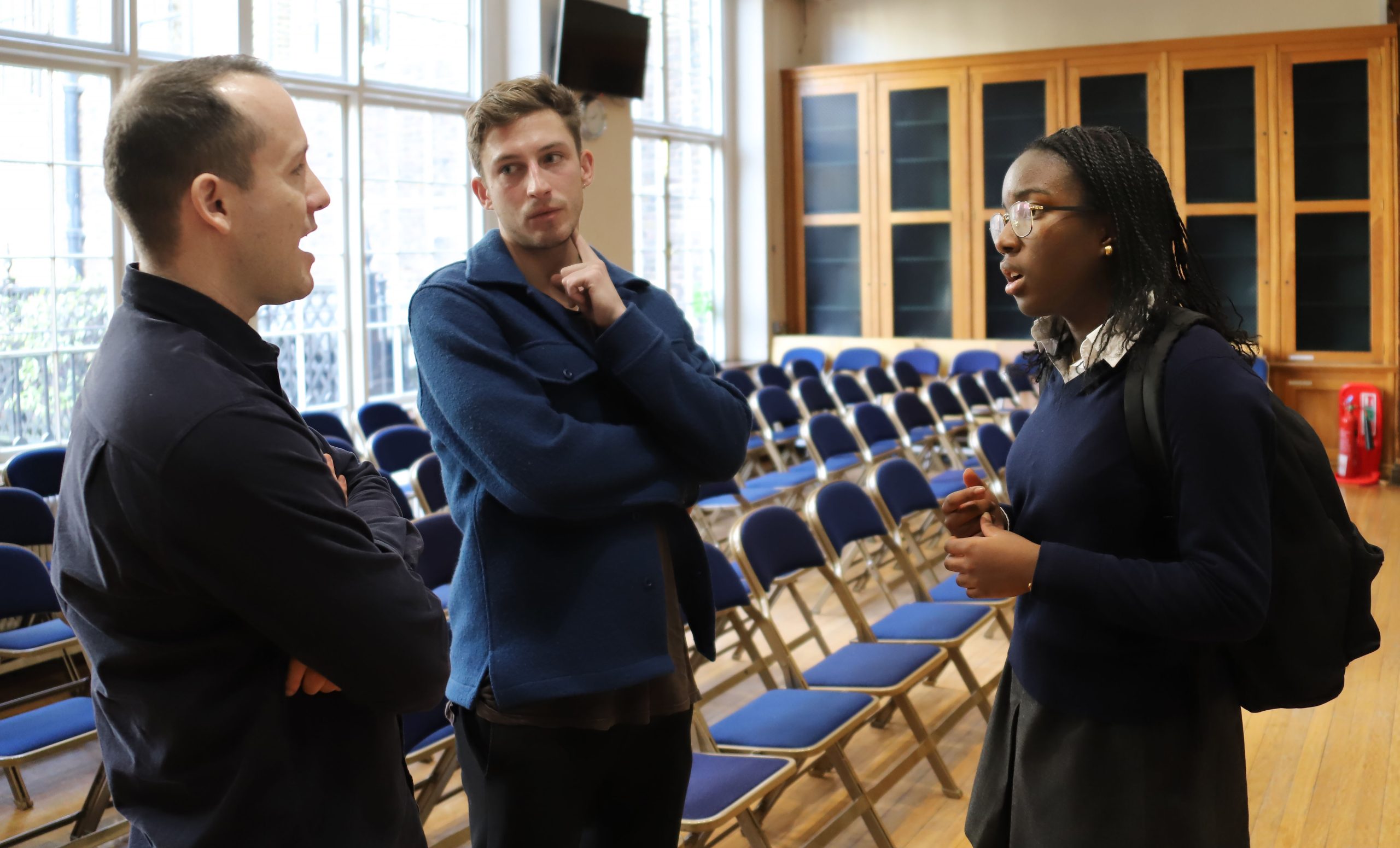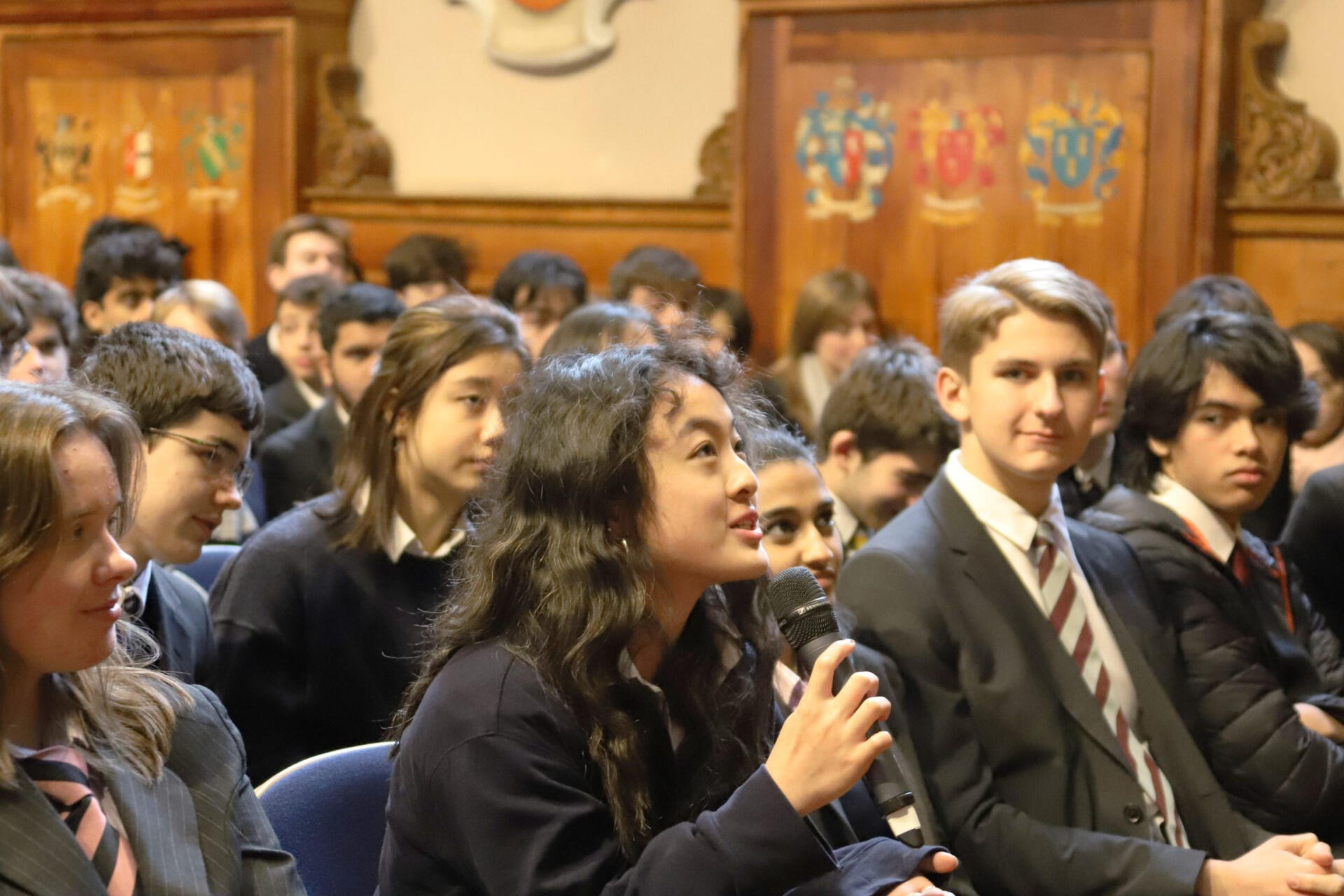The dangers of creating content and leaving ‘bread crumbs’ of information on the internet have been exposed in a Westminster session focusing on free speech and privacy
In a fascinating talk in December, Thomas Rukin, a partner at City law firm Farrer & Co, asked pupils to look at the delicate balance between freedom of expression in the digital era and an individual’s right to privacy, and how this complicated dichotomy is being reflected in defamation law and the verdicts being passed.
Beginning his talk, Where does freedom of expression end?, Mr Rudkin focused on the recent Vardy v Rooney ‘Wagatha Christie’ case, in which Rebekah Vardy attempted to sue Coleen Rooney first for defamation and then for libel, after Rooney claimed stories from their private conversations had been leaked to the press. With the judge ruling in favour of Rooney, Vardy was forced to pay extensive legal fees, and she herself faced reputational damage.
Highlighting the law’s move towards protecting personal privacy and reputation in an age of social media, the reputation, media and information lawyer explained that laws are becoming more preventive around online content regulation, in reaction to the rise of false news, disinformation and propaganda, and that in contrast there are no absolute rights when it comes to freedom of speech.
He gave a salutary warning to the young audience about the permanence of user-generated content online and the potential repercussions of leaving a bread crumb trail of information. “There’s no such thing as tomorrow’s fish and chip paper” in today’s world, he said.
At the end of the lecture, Rafael (Sixth Form, GG) said: “It was a privilege to hear from someone so clearly experienced and well-versed in the world of modern law surrounding defamation, and I found the lecture by Thomas Rudkin to be highly interesting and informative about this extremely current topic. I learnt about the nuances and boundaries surrounding freedom of expression and its limits, particularly his relation of these legal concepts to high-profile cases and controversial topics such as defamation in the age of social media and the rise of Strategic Lawsuits Against Public Participation.”
Aryan (Remove, HH) added: “The talk was a fantastic insight into some very topical issues around the conflicts between the right to free speech and the right to privacy. It was interesting to have a legal perspective on these issues, setting out in greater clarity exactly where the line is drawn in law, and how new legislation could change it.”
Related News Stories



